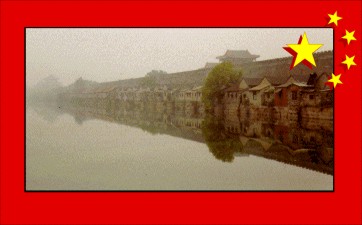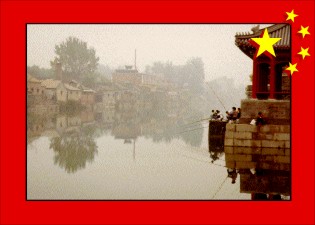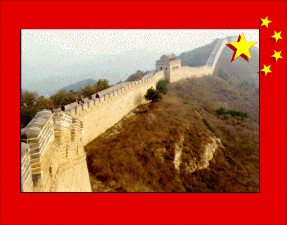

The way the Chinese treat nature is similar to the way the Japanese do yet there is a clear distinction between the two. Both societies seem to have a respect for the beauty of nature that I don't believe I have ever seen anywhere else. The distinction is the degree to which nature is manipulated. In China, nature and natural scenes depicted in art are less manicured than they are in Japan. Whether it be the yellowish-gray haze that casts a certain look to the mountain or river scenes, or the twisted ancient cypress trees in places like Qufu, the Chinese respect for an untamed nature reflects something about the society. Some say that Chinese society can only be kept together by a strong, centralized government such as has existed for over a millennium under the emperors of dynastic China or during the Communist era, but this is only so because the Chinese seem intrinsically unruly or resistant to control. In Japan, the woodblock print is a perfect example of restricting or confining one's view of nature within specific parameters which can then be replicated over and over just as Japanese society is characterized by intense social conformity. Japan is a place where the rules of social behavior are strictly defined and imprinted throughout society.


I was mostly disillusioned by what I saw in China. It was so dirty, poor, and lacking in equitable living conditions that I lost all hope for a place I had spent much time studying about. China's influence, primarily through its enormous populace will always be influential, but the capital infusion needed to improve the country to the standards of countries in the West or Japan seems to me unfathomable. Sure portions of places like Shanghai, Beijing, Guandong, and Fujian may come close, even reach the level of Taiwan or Hong Kong, but these are relatively small parts of China. China is still grappling with many of the same questions and fears it had over a century and a half ago. I cringe whenever I recall the monologue of an American hua qiao, or overseas Chinese, who had returned to China and apparently dedicated himself to the country's future. He boasted of the potential of China and claimed that the country could reach or surpass the United States in thirty years. He made no comment about the lack of political reform in China which, I believe, is primarily responsible for the gross inequities that seem more apparent in a nominally socialist China than anywhere else in the world. At the time (October, 1995), when Deng Xiaoping was still believed to be keeping the conflicting principles of the ruling elite in check, China's polity was relatively stable. We must wait and see how long stability is maintained in his absence.


